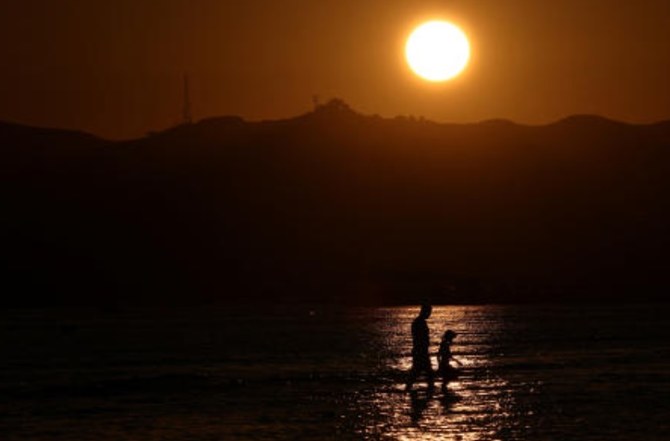PODGORICA: A major power outage hit Montenegro, Bosnia, Albania and most of Croatia’s coast on Friday, disrupting businesses, shutting down traffic lights and leaving people sweltering without air conditioning in the middle of a heatwave.
Montenegro’s energy minister said the shutdown was caused by a sudden increase in power consumption brought on by high temperatures, and by the heat itself overloading systems. Power distribution is linked across the Balkans for transfers and trading.
“This was just waiting to happen in this heat,” Gentiana, a 24-year-old student in Montenegro’s capital Podgorica, told Reuters. Temperatures hit 40 degrees Celsius (104 degrees Fahrenheit) across the southeastern European region.
Electricity and wifi networks went down from around 1 p.m. (1100 GMT), officials and social media users said. Suppliers in the four countries said they started restoring supply by mid-afternoon and power was largely back by the evening.
At the start of the blackout, traffic light failures caused gridlock in Bosnia’s capital Sarajevo and the cities of Banja Luka and Mostar, Reuters reporters said.
Many lost water in Podgorica as pumps stopped working, locals reported. Air conditioners shut down and ice cream melted in tourist shops.
Cars also ground to a halt in the Croatian coastal city of Split, state TV HRT reported. Ambulance sirens rang out across the city, it added.
“The failure occurred as a result of a heavy load on the network, a sudden increase in power consumption due to high temperature and the high temperatures themselves,” Montenegro’s energy minister, Sasa Mujovic, said in a TV broadcast.
Experts were still trying to identify where the malfunction originated, he added.
RISK REMAINS
Montenegro’s Vijesti TV said a fire had been spotted in a 400KW transmission line in a rugged area along the border with Bosnia — though it was not immediately clear if this could have been the cause of outages or in some way related to them.
The report cited unnamed sources from the electric transmission company CGES which, it said, would need helicopters to access the site.
Albanian Energy Minister Belinda Balluku said there had been a breakdown in an interconnector between Albania and Greece and he had heard there had been similar circumstances in Montenegro and parts of Croatia and Bosnia.
A full investigation would take time, but early analysis suggested that “big volumes of power in the transmission system at the moment and very high temperatures in record levels have created this technical problem,” Balluku added in a video address.
Power in Albania was restored within half an hour, but the country remained at a high risk of further shutdowns as power usage and heat levels were still high, he said.
Shifts in the region’s energy supplies have put strains on its transmission systems, industry officials say.
Western Balkan nations have seen a boom in solar energy investment, meant to ease a power crisis that had threatened a shift away from coal.
But the infrastructure is not prepared for new energy feeds, the president of North Macedonia’s Energy Regulatory Commission and other industry figures told Reuters in April last year.
























